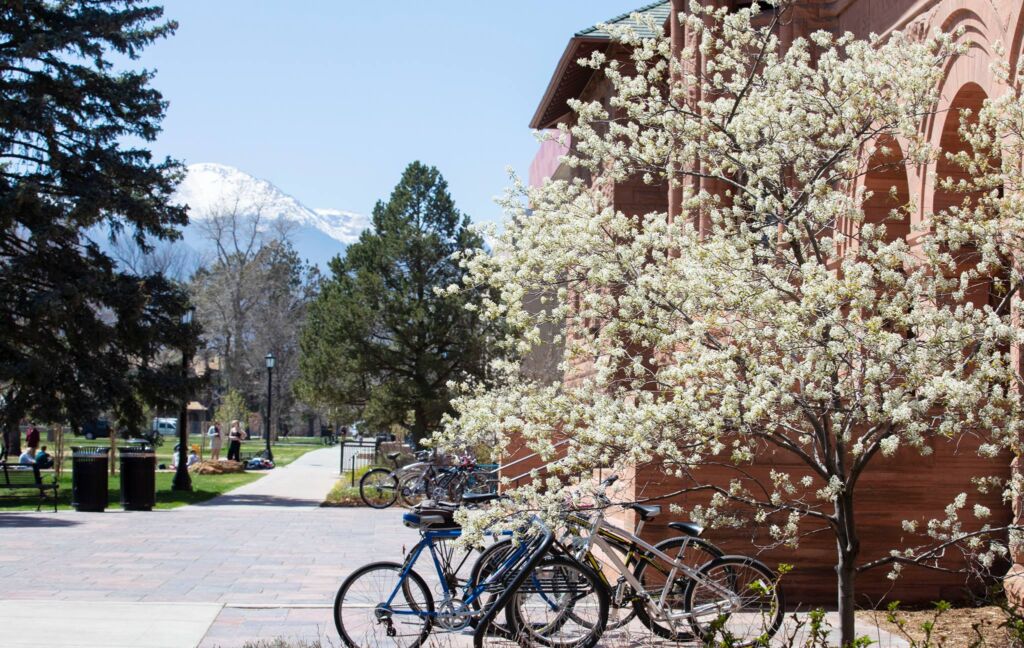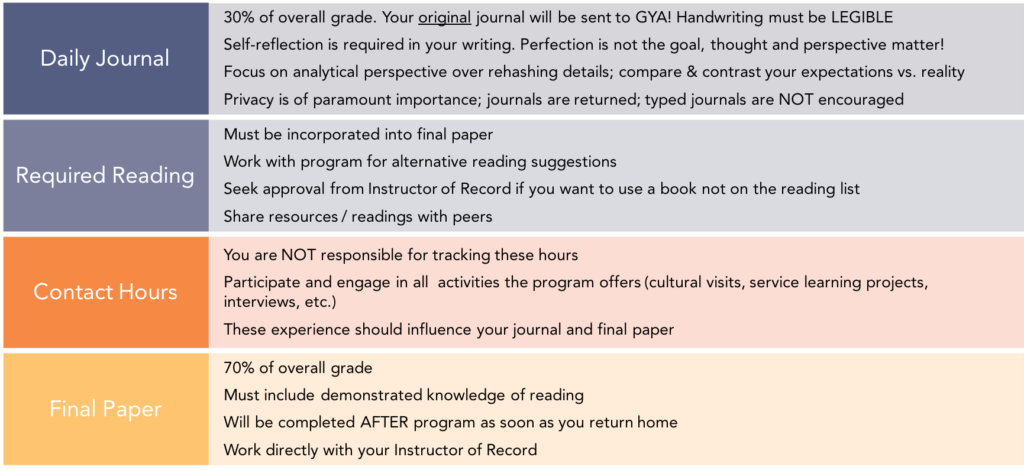
The COVID-19 pandemic served to exacerbate and expose existing fissures in our higher education system. Costs are skyrocketing, while the financial burden on students and recent grads has become overwhelming. In 2020 and 2021, the number of students opting to take a gap year increased significantly compared to previous years. For some this was the chosen path: a journey they planned for some time with family and school counselors. For others, however, it was a default reaction to a year of lockdowns and “zoom school.” A year in which the astronomical costs of higher education simply couldn’t be justified through the educational experience of sitting at home or in the confines of a residence hall.
Conventional expectations tell us that we should go to high school, apply to colleges, and in our senior year build out a roadmap to a future that includes 4+ years of higher education. The reality today is that very few students actually complete a bachelor’s degree in four years (NCES Fast Facts data).
There are growing alternatives to the traditional first year of college. A gap year that includes college credit can benefit students by not derailing their plans to complete a bachelor’s degree “on time,” while enabling them to capitalize on all the benefits a gap year can offer.
Earning College Credit Through The Gap Year Association
The Gap Year Association facilitates a unique opportunity for you to earn college credit while on a program with a GYA-Accredited Program Provider.

The credit is offered through a partnership with Portland State University. It enables you as a program participant to register as a non-matriculated student with PSU’s Office of International Affairs. You will find a GYA-Accredited program of interest, apply, and once accepted to the program, register for up to four classes offered. Choosing the college credit option could transfer up to a semester’s worth of credit. Courses currently on offer are geared toward meeting general education requirements for first or second year students. Currently 5 GYA Accredited Programs participate in offering college credit and more are being added regularly!
For a complete course list, please contact your program provider or reference GYA’s College Credit webpage for an idea of the course topics available.
Why earn college credit on a gap year?
Opting to earn college credit on a gap year enables you to transfer credit to an institution for which you have deferred admission or one you plan to matriculate into later. The main appeal for earning college credit on a gap year is that:
- It allows you to transfer in with some credit earned toward your general education requirements.
- The credit is inexpensive when compared to general education credit for most public and private institutions. Just $1700 for one course or up to four. That is, you may take 1 course for $1700 or as many as 4 courses still for only $1700.
- 529 tax-deferred savings can be used to pay for the program tuition and credit.
- It’s an easy way to round out the learning from your program in a way that naturally builds upon the experience you will have.
529 tax-deferred savings may be used to pay for all qualifying education expenses including program and credit fees if you are opting to earn college credit. It is worth families understanding this and communicating with programs directly if you plan to use these funds for a gap year. The Gap Year Association always recommends that you consult with a tax advisor or fiduciary for particulars on using 529 funds.
83% of recently-surveyed students who took a gap year returned to higher education within a year (Gallagher & Blythe, Gap Year Alumni Survey 2020)
Finally, and perhaps the best part…The experiential nature of the courses and the programs offered leads this to be a natural fit to round out the learning experiences from a gap year. It will not require you to sit in front of textbooks and computers for hours each day while others in your cohort are out experiencing a new culture, community, and environment. The courses are designed around the experiences you will have and will allow you to participate fully in the program, whether that be service learning projects, cultural immersive experiences, arts programs, site visits, and historical tours, and so on!
How to Enroll in the Gap Year Association College Credit Option
Communicate your intent to enroll in college credit with your GYA-Accredited Program. They will help you through the process of registering and selecting courses. It’s important to know that not all programs will offer all courses and it may depend on their location and program itinerary. If there is a course you have been pre-approved for through your college or university, please double check that your GYA-Accredited program can offer it.
All fees will be paid to your program including college credit fees. Once you’ve been registered, and shortly before embarking on your journey, you will receive an email introduction from your GYA Instructor of Record. This is the PSU-approved instructor who will be your contact and support as you complete the coursework.
How to transfer college credit earned on a gap year?

Could this interfere with a deferral plan?
Potentially. Many students apply for admission first, then defer their acceptance—in some cases, conditions for deferral may include no allowance for credits during the deferral period; a limit on the number of credits earned; and/or not formally matriculating at another institution. We advise you to communicate clearly and directly with your college Admissions Officer or Registrar PRIOR to enrolling in college credit courses to ensure they transfer as desired. We recommend the following steps when navigating deferred admissions and college credit during a gap year:
- Consult with GYA’s growing College Deferral Policies web page.
- Try and negotiate with your institution to make an exception for a high-quality gap year, citing GYA research and external metrics for the amazing outcomes.
- In many cases students are receiving more in merit-aid as a result of their gap year. You should ask for a financial aid reassessment at the commencement of your college time.
- Consider not deferring but still putting together all of your application materials for easier submission while on your gap year. Deferrals are strongly encouraged because it helps students compile all of their academic records centrally when logistics and resources are available.
- Consider canceling your deferral and re-applying to the next institution.
- Acceptance to any institution can never be guaranteed and students are STRONGLY discouraged from accepting admissions to multiple universities: they do talk and it can end badly!
What are the course requirements?
Course requirements involve four main components: journaling, contact hours, required reading, and a final paper for each class. These requirements are detailed further in specific course syllabi, which your program will share with you. Any questions about course requirements should be directed to your GYA Instructor of Record. They are available to you before, during, and after your program.

The relationship between the Gap Year Association and Portland State University is just one way to earn college credit on a gap year. Some programs have unique relationships with other universities that have been running successfully for years. There are also colleges and universities that offer their own gap year programs, such as University of North Carolina at Chapel Hill, Western Colorado University, and Florida State University, to name just a few. Some schools will allow students to earn credit and others will not. We encourage you to research the best program for your desired learning outcomes, and communicate clearly with any institution at which you plan to matriculate in the future.
A gap year is a great opportunity to build on professional, academic, and personal interests. It will likely have you emerge with more confidence in yourself and future academic and professional endeavors if done with appropriate support and planning. Don’t fear the unknown simply because society has told us there is only one way into adulthood!
ABOUT THE AUTHOR
 Vanessa Zuidema is a global education leader who is passionate about experiential education as a means to enhance individual growth and transform higher education. As the Gap Year Association’s Associate Director, Vanessa coordinated GYA’s partnership with PSU and worked on all things college credit for gap years. She also servesd on the Higher Education and Outreach Committees. Her own journey in the gap year field began with an adventure to Martinique after her freshman year at university where she became enamored with the rich blend of languages, culture, and community.
Vanessa Zuidema is a global education leader who is passionate about experiential education as a means to enhance individual growth and transform higher education. As the Gap Year Association’s Associate Director, Vanessa coordinated GYA’s partnership with PSU and worked on all things college credit for gap years. She also servesd on the Higher Education and Outreach Committees. Her own journey in the gap year field began with an adventure to Martinique after her freshman year at university where she became enamored with the rich blend of languages, culture, and community.
Vanessa holds an MA in International Education from New York University and a BA from James Madison University. Vanessa has more than 10 years of experience directing English language schools and international university partnerships in New York.
Images in this post courtesy of Pacific Discovery, Colorado College, and the Gap Year Association.
Categories
- Advising (7)
- Alumni (2)
- Career (5)
- College & University (15)
- Communication (17)
- DEIA (4)
- Fair Trade Learning (3)
- Finances (12)
- Gap Year Benefits (68)
- Growth & Development (8)
- Leadership (6)
- Learning & Reflection (55)
- Mental Health (4)
- Planning (60)
- Professional Development (5)
- Research (4)
- Risk Management (3)
- Safety (5)
- Service-Learning (10)
- Standards & Accreditation (1)
- Sustainability (6)
- Voices Project (20)
